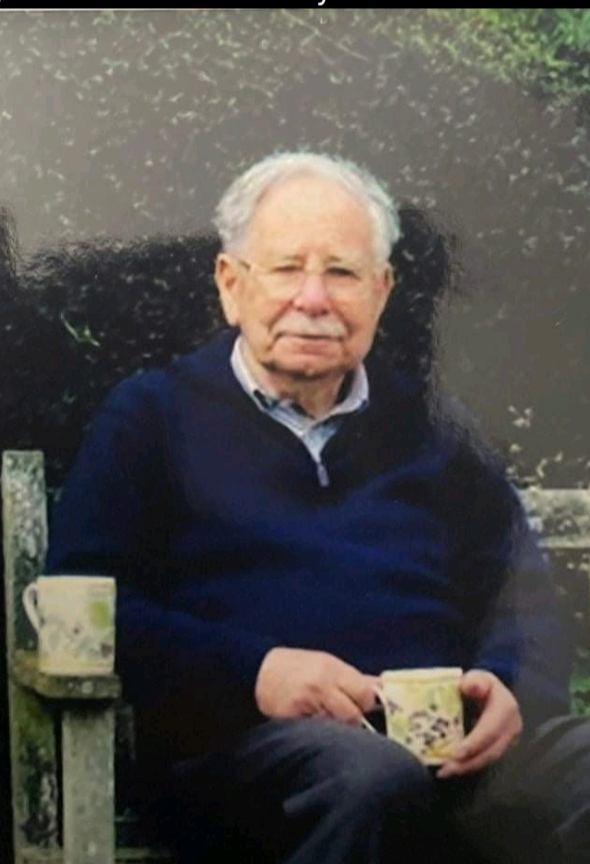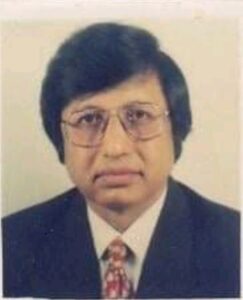আপডেট: আগস্ট ১৫, ২০২১

John B. Harrison—Salute to A Real Guru
– Professor Sharif Uddin Ahmed
North South University, Dhaka
John B. Harrison, a doyen of South Asian History and the Emeritus Reader of History at the School of Oriental and African Studies, University of London, passed away recently at the age of 102. As a former graduate student of John, I went to visit him in his country home of Southern England in 2017. That was the last time I met him though I used to talk to him over the telephone as frequently as I could manage. The last time I spoke to him was about three months ago.

In these days of continuous mourning and numerous deaths all over the world, the news of the death of any illustrious person is all the more heartrending. But John’s death is quite different. As man is mortal, none can escape it—it is a fact of life. Blissful it is that John lived for quite a long time. Thus his death is an occasion of feeling gratefulness to a man, a scholar, a true friend and a great Guru who has rendered an amazing deed for scholarship and humanity. He was a Briton of its best kind. He also taught a great number of South Asian students including many Bangladeshi scholars.
A Cambridge graduate, John joined the Army as did almost everyone during the Second World War and was posted in India. His days in India, despite the horrific and dreadful experience of fighting, were full of pleasant memories which he cherished till his death. India, it’s land and it’s people became his concerns for the rest of his life. He could never live without his thoughts about India. He became a Major in the Army and because of his military rank, he came to be known all over the world as Major Harrison even when he was a faculty at the School of Oriental and African Studies, University of London. This Major image often caused a negative reaction to many of his students who initially thought that he might be a very stiff, arrogant and rude person. But John as a man was quite the opposite. No better human being than John I have ever met in my life. I first met him during a bad patch of my life just around the time of our Liberation War. I told him that I wished to do my Ph. D. under him. He looked at me for a while and then said: “Ok I would take you.” Days later he asked me to carry on research on the urban history of Dhaka, capital of Bangladesh following the path of Professor Abdul Karim, another extremely loving teacher of mine at Dhaka University. I accepted the proposal and that changed my life for good.
Back to John, after returning home from his war duty in India, he got himself admitted into a postgraduate study at the School of Oriental and African Studies (SOAS) to learn some Indian languages—what else he would like to do—and eventually earned his doctoral degree. But soon he became so involved in advising and helping students of SOAS, many of whom were carrying out postgraduate researches on Indian history, that he already became an unofficial supervisor. He of course became the official Supervisor when he joined SOAS as a faculty. Very soon he became so engrossed in helping postgraduate and undergraduate students in various ways that he started neglecting his studies, thus sacrificing his own attainment of becoming a pundit in the eyes of other pundits. He was of course a pundit in his own noble manner.
Since the 1950s a galaxy of extraordinarily brilliant students from the Indian subcontinent began arriving at SOAS. They became John’s students and later famous scholars and historians. A large number of them were from today’s Bangladesh. Thus John had embarked upon a startling career as the Guru of South Asian scholars. When he took me on a pleasant summer day to the Senate House of London University to hand over my Doctoral dissertation to the officials, he told me that mine was the 68th Doctoral dissertation that was passing through his hands during his career so far. Good many of the Doctoral dissertations were from Bangladesh as has been already mentioned, beginning with Professor Abdul Karim and followed by others like Professor Alamgir Siraj of Chittagong University, Professor Sufia Ahmed, National Professor, Professor K M Mohsin, Professor ABM Mahmud, Professor Sirajul Islam, Professor Zaheda Ahmed, Dr. Nazia Khanum and of course myself of Dhaka University. He loved his supervising job more than anything else so much so that he worked equally hard in preparing the dissertations in multiple different ways as were his students. His command over Indian subjects of any field, especially of course history, was unbelievable. But more importantly, he could grasp the subjects and write about them in the most penetrating ways with crisp English at great ease. From the caste system to the biographies of the famous people of South Asia nothing escaped his eagle eyes to portrait an authentic narrative as well as a scientific discourse. He was the scholar who brought ever new subjects on South Asia for investigation and the considerat.